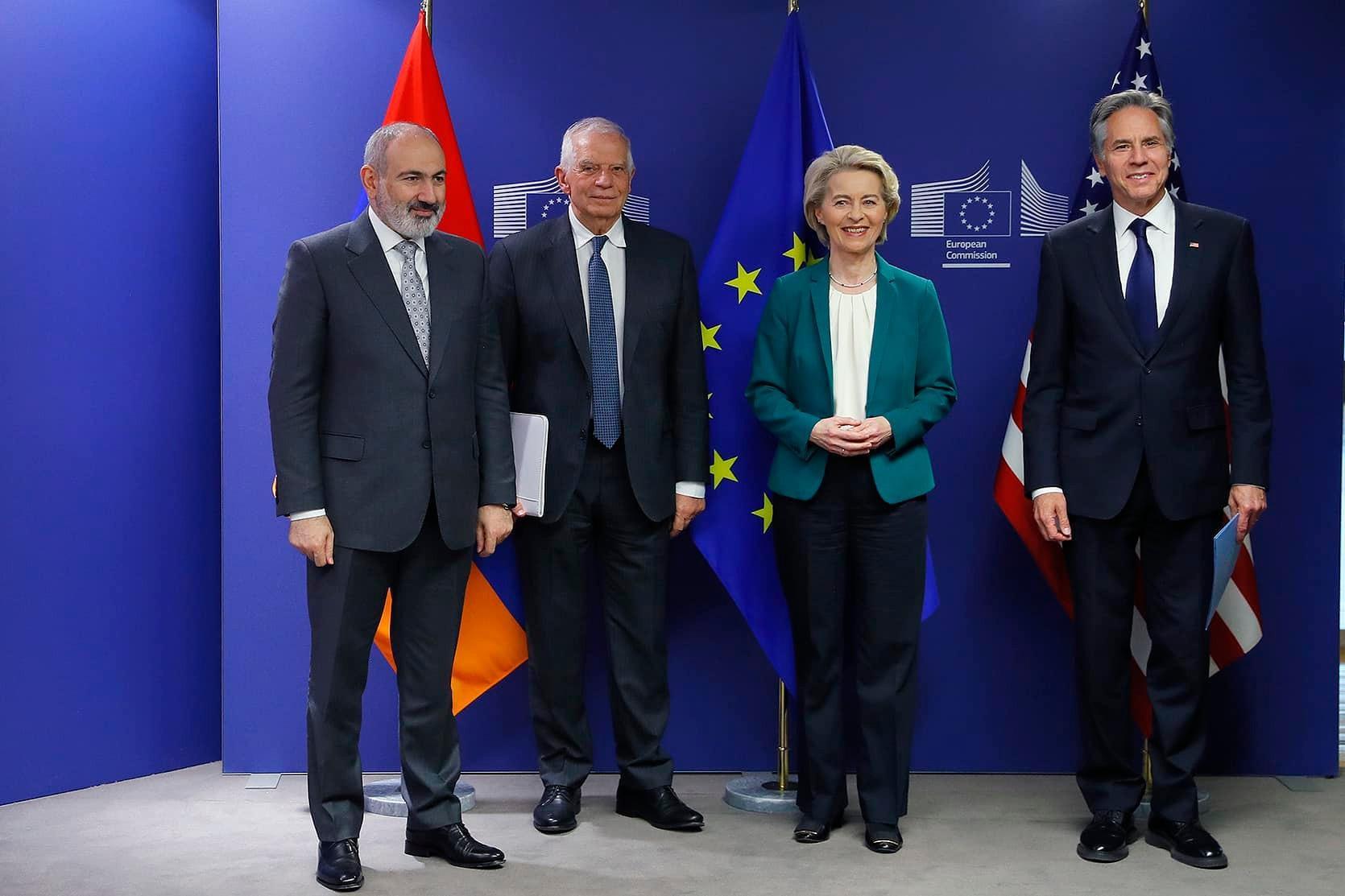
“Ephemeral Promises”: Russia Warns Yerevan Not to Become Geopolitical Tool of the West
Russia has described yesterday’s meeting in Brussels between Armenian PM Nikol Pashinyan and top E.U. and U.S. officials as an attempt to use Armenia as a tool to “drag the South Caucasus into a geopolitical confrontation.”
Russia’s Foreign Ministry, in a statement yesterday, said the West is using “ephemeral promises”, to facilitate Armenia’s withdrawal from the CSTO and the EAEU, and the withdrawal of the Russian military base and border guards.
Following yesterday’s meeting between Armenian PM Nikol Pashinyan, European Commission President Ursula von der Leyen, U.S. Secretary of State Anthony Blinken and E.U. High Representative for Foreign Affairs and Security Josep Borrell, the European Union announced a €270 million grant to Armenia and pledged to expand relations with Yerevan.
The meeting comes as Armenia seeks to decrease its reliance on Moscow and pivot its foreign policy towards the West.
“We call on the leadership in Yerevan not to allow the West to deceive it and lead the country down the wrong path, which is fraught with the emergence of a security vacuum, serious problems in the economy and outflow of population,” reads the ministry’s statement.
Yesterday, Blinken pledged some US$65 million in aid to Armenia and said the U.S. and the E.U. ““wants Armenia to be strong, independent, living in peace with its neighbors and connected to the region and the world.”
Ursula von der Leyen, in a direct snub to Moscow, welcomed measures that Armenia has taken against the circumvention of Western sanctions against Russia, especially to make sure that lethal equipment and technologies do not end up in the hands of the Russian military.
The Russian ministry said such promises of aid to Armenia “cannot be compared with the multibillion-dollar benefits that Armenia continues to receive from interaction with Moscow and within the Eurasian Economic Union and the CIS.”
The ministry also accused the West of scuttling Moscow’s attempts to negotiate an Armenia-Azerbaijan peace deal.
The ministry claims the West pressured Yerevan to pull out of implementing agreements signed by Russia, Armenia and Azerbaijan following the 2020 Karabakh War designed to unblock transport and economic routes in the South Caucasus and to delimitate the Armenia-Azerbaijan border.
Moscow called on the West and Yerevan to respect the principle of “regional responsibility” when drafting their foreign policy and to consider the concerns of neighboring states.
This point directly refers to Iran, which has also called for external “non-interference” in the South Caucasus.
While the Armenian government continues to claim that this shift in its foreign policy is not directed against any third party, it’s clear that Moscow views the matter differently.
 Videos
Videos Photos
Photos




Write a comment